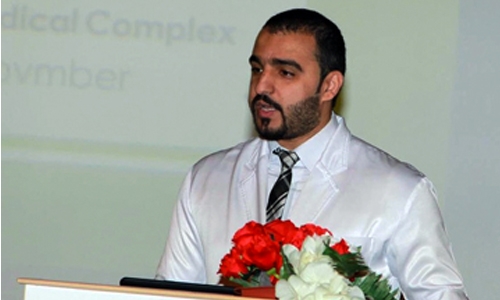Sickle-cell anemia database created at SMC
The developer and administrator of the Multi-disciplinary Sickle-Cell Anemia Clinic at Salmaniya Medical Complex (SMC), Ali Darwish, said the clinic has accomplished spectacular results in two years since its inception, the most important of which is the creation of the first-of-its-type major database on patients and the disease that serves as a point of reference to conduct research and planning future projects related to sickle cell disease in the Kingdom of Bahrain, the region and the world.
Darwish said the multi-disciplinary clinic has been created to undertake the pivotal role of maintaining healthy patients in the community through early detection of associated bouts of complications to avoid their recurrence in future.
The duties of the clinic include overall assessment, accurate diagnostics, integrated treatment, re-assessment of patients by the nine-member team of medical specialists from various disciplines simultaneously under one roof, he added.
He stressed the importance of the database that emanates from its flexibility and capacity for continuous development and expansion to include all patients' and disease's relevant data, primarily indicators of lifestyle of each patient and general bibliographic information about individual patients and the spread of the disease kingdom-wise and explanation of its complications.
He said the key role of the clinic is diagnosis of psychological impacts and a patient's need for psychiatric support. Individual patient's social information will be used to gauge a patient's needs for professional, educational, financial, familial and training support.
The vast medical database will constitute a quantum addition to Bahraini expertise working in the area of sickle-cell anemia to facilitate advanced scientific research and participation in international conferences to identify the various cases of sickle cell patients in the kingdom, in the Arab world and to compare with patients of African or European descent, he concluded.
Related Posts

